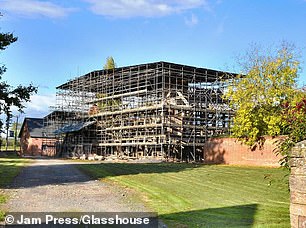Former Apollo astronaut James Lovell, who personified the spirt of NASA’s calm confidence that despair would never have dominion, has died at the age of 97.
As noted by the New York Times, Lovell would be forever linked to the phrase “Houston, we’ve had a problem,” when trouble struck Apollo 13 as it orbited the moon in 1970, raising fears for the survival of the astronauts on board.
Years later, the phrase was revised to “Houston, we have a problem” for an Oscar-nominated 1996 feature film. That declaration of distress “became part of the American lexicon, a wry way of signaling that something was amiss,” the news outlet reported.
The first sign of trouble for the ill-fated space flight was a noise that shook the astronauts.
“At first, we thought it was a meteor strike,” Lovell would later recall.
Jim Lovell was an absolute legend.
Made famous by the film Apollo 13 (he was Tom Hank’s character) but also the command module pilot for Apollo 8, imo the most gutsy mission from the history of crewed spaceflight. One of 24 people to ever see Earth like this.
Rest well, Jim 🫡 https://t.co/hv1fhLbhTe pic.twitter.com/oxhuO5s9hQ
— Andrew McCarthy (@AJamesMcCarthy) August 8, 2025
“We knew that would cause a puncture that would allow all our air to escape, leaving us dead in a few minutes. When we realized that it wasn’t a meteor, we very quickly got busy figuring out what did happen and how we could get back home,” he said.
Eventually, a stopgap solution was rigged that would bring Lovell, Fred W. Haise Jr., and John L. Swigert Jr. home, but it cost Lovell the chance to tread on the lunar surface.
The ride home was cold and uncertain.
“We rubbed our hands together and stamped our boots to keep warm,” Lovell, who fired the rockets that guided the limping spacecraft home, would later say.
James Lovell, the commander of Apollo 13, and an Ohio native, who helped turn a failed moon mission into a triumph of on-the-fly can-do engineering, has died. He was 97. https://t.co/fJwwsrarZf pic.twitter.com/sQGE0pMWSz
— NBC4 Columbus (@nbc4i) August 8, 2025
Even before the crisis and return, which would be retold by Hollywood in a film starring Tom Hanks, Kevin Bacon, Gary Sinise, and Bill Paxton, Lovell had carved a niche in American hearts, as on his Apollo 8 mission, as he read from the book of Genesis during the crew’s Christmas Eve broadcast to Earth.
“And God called the light Day, and the darkness he called Night,” Lovell read. “And the evening and the morning were the first day.”
On December 24, 1968, while orbiting the Moon, the crew of Apollo 8 (Frank Borman, James Lovell and William Anders) made a Christmas Eve television broadcast in which they read the first ten verses from the Book of Genesis pic.twitter.com/PctnoRKx9Y
— RetroNewsNow (@RetroNewsNow) December 25, 2024
“NASA sends its condolences to the family of Capt. Jim Lovell, whose life and work inspired millions of people across the decades. Jim’s character and steadfast courage helped our nation reach the Moon and turned a potential tragedy into a success from which we learned an enormous amount. We mourn his passing even as we celebrate his achievements,” Acting NASA Administrator Sean Duffy said in a statement posted to NASA’s website.
Christmas 1968, from the far side of the Moon with Earth entirely hidden from view, the Apollo 8 spacecraft ignited its SPS engine to return to Earth.
James Lovell radioed back to mission control: “Please be informed there is a Santa Claus,” as they began their way home. This… pic.twitter.com/fROnkQWvWB
— Steve Jurvetson (@FutureJurvetson) December 25, 2024
“From a pair of pioneering Gemini missions to the successes of Apollo, Jim helped our nation forge a historic path in space that carries us forward to upcoming Artemis missions to the Moon and beyond,” Duffy said.
“As the Command Module Pilot for Apollo 8, Jim and his crewmates became the first to lift off on a Saturn V rocket and orbit the Moon, proving that the lunar landing was within our reach. As commander of the Apollo 13 mission, his calm strength under pressure helped return the crew safely to Earth and demonstrated the quick thinking and innovation that informed future NASA missions,” he said.
Advertise with The Western Journal and reach millions of highly engaged readers, while supporting our work. Advertise Today.













